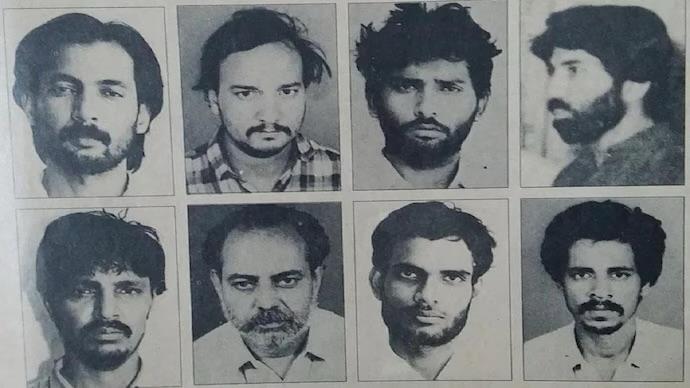In a landmark verdict, six individuals involved in one of the largest sex scandals in India’s history, which erupted in Ajmer 32 years ago, have been sentenced to life imprisonment by the district court. Additionally, they have been ordered to pay a fine of Rs 5 lakh each. The convicted individuals include Nafees Chishti, Naseem alias Tarzan, Salim Chishti, Iqbal Bhati, Sohil Gani, and Syed Zameer Hussain. They were found guilty after a prolonged trial that spanned three decades. Twelve individuals were originally charged in connection with the Ajmer Sex Scandal of 1992.
Four other accused in the case have already been sentenced. The scandal implicated several individuals with political connections to the Congress Party. The main accused, Farooq Chishti, was the President of the Ajmer Youth Congress, while Nafees Chishti served as Vice President of the Ajmer Indian National Congress. Anwar Chishti was the Joint Secretary of the Ajmer Indian National Congress.
The Scandal
The scandal began with Farooq Chishti grooming and raping a female student from Sophia Senior Secondary School. He reportedly took objectionable photographs of the minor and threatened her to introduce other girls to him. These girls were then subjected to rape and blackmail.
At the time of the scandal, Farooq Chishti was the president of the Ajmer Youth Congress, and Nafees Chishti and Anwar Chishti held senior positions in the local Congress unit. Some of the accused were also Khadims (caretakers) of the Ajmer Dargah.
In April 1992, Ajmer was shocked by reports of the sexual exploitation of over 100 women aged 17 to 20, with some estimates suggesting up to 250 victims. Journalist Santosh Gupta’s report, published in Dainik Navjyoti, detailed how hundreds of schoolgirls were sexually exploited by the accused. The perpetrators recorded the assaults and used the footage to coerce the victims into bringing more girls.
The scandal’s reach extended to the daughters of prominent leaders in Ajmer, with a report headlined “Daughters of Big Leaders are Victims of Blackmail.” The accused were influential both financially and politically. Following the publication, efforts were made to destroy evidence and intimidate victims and their families into silence.
The involvement of influential Khadims from the Ajmer Dargah added to the scandal’s gravity.
Political and Administrative response
The scandal prompted a series of reports from Gupta, who revealed the CID’s prior knowledge of the issue and the involvement of Rajasthan’s then-home minister, Digvijay Singh, who had seen the obscene photographs before the scandal was made public. This led to heightened public outrage and pressure on the government.
Deenbandhu Chaudhary, editor of Navjyoti, acknowledged that local law enforcement had been aware of the scandal long before it was reported, but political interference had stalled investigations. The decision to publish the story was driven by a need to prompt action from the administration.
The state administration, led by then-Chief Minister Bairon Singh Shekhawat, took steps to address the scandal, including meeting with legal representatives and involving BJP leader Veer Kumar. The accused were eventually jailed under the National Security Act.
In 1992, the matter was transferred to the CID, leading to an FIR registered by Deputy Superintendent Hariprasad Sharma. The investigation, led by senior IPS officer NK Patni, uncovered the involvement of key figures including Farooq Chishti and Nafis Chishti, as well as others like photo studio manager Harish Tolani. Many victims had already committed suicide, and only a few continued to pursue the case.
Exploitation by the media
The scandal was further compounded by exploitation from local tabloids, which blackmailed victims with explicit images, demanding money to keep the photos hidden. Madan Singh, chief editor of ‘Lehron Ki Barkha,’ was known for blackmailing victims before being assassinated in 1992. His sons later avenged his murder in January 2023.
In 1998, some accused were sentenced to life imprisonment, but four were acquitted by the Rajasthan High Court in 2001. By 2003, the sentences for four others were reduced to 10 years. Out of 250 reported victims, only 12 filed complaints. It took 32 years for the remaining six culprits to be punished, with further appeals possible in higher courts. Farooq Chishti, initially declared mentally unstable, was convicted by a fast-track court in 2007. The Rajasthan High Court upheld this conviction in 2013, reducing the life sentence to the time already served.

